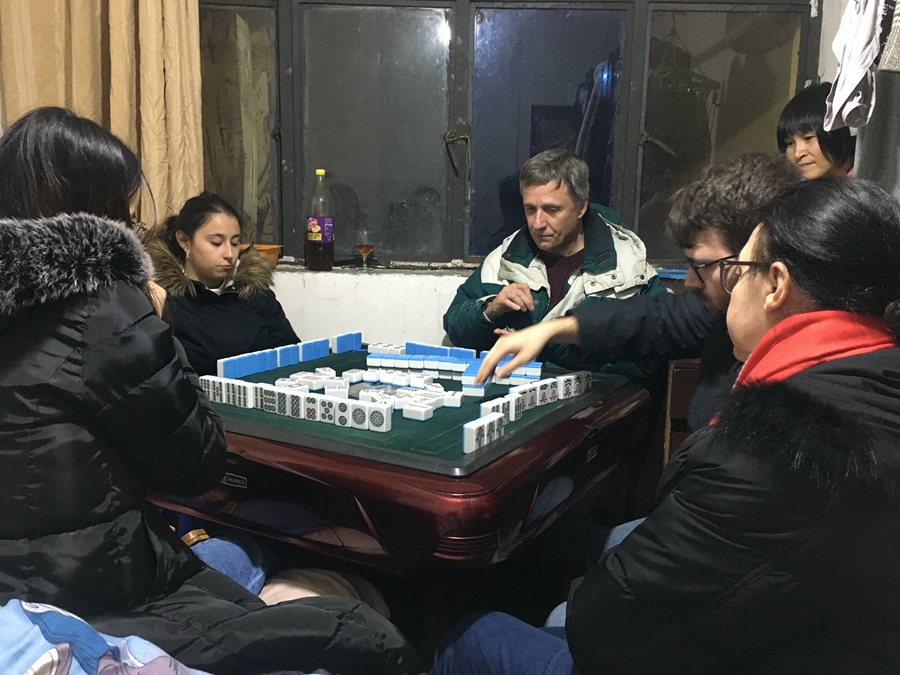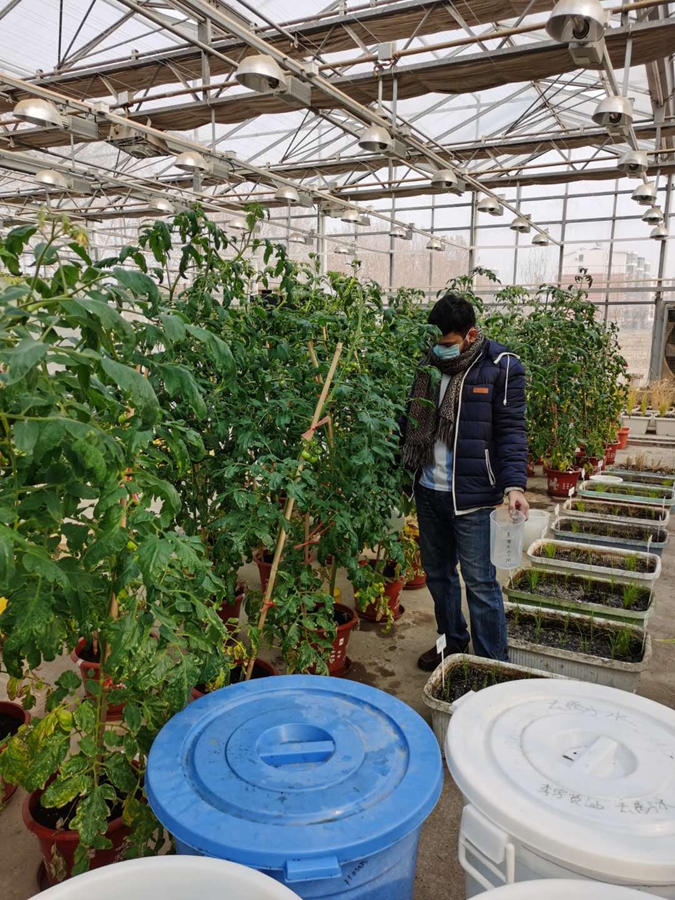Foreign students find ways to cope with COVID-19 outbreak
Amid the COVID-19 epidemic, Beijing's foreign students continue their lives and studies in and outside China.
By Cui Can
Beijing's Wudaokou is usually crowded with students this time of a year. The small area in the city's northwest neighbors several well-known universities, and now is the start of the spring semester.
This February, however, the streets have been eerily empty, and stores and restaurants have remained shut since the start of Spring Festival. The impact of the COVID-19 outbreak could not be more evident in this normally bustling shopping district.
The area is especially favored by foreign students studying at the nearby universities. Since the outbreak, those here learned to cope and support efforts to contain the epidemic, while others who had gone home found ways to help people in China from abroad.
Jorge Canalejas Cano, a 25-year-old Spanish student living around Wudaokou and studying at the nearby Beijing Language and Culture University, did not realize the seriousness of the outbreak when he and his family traveled to Sichuan province. They were there to visit his girlfriend's hometown and spend the Spring Festival holidays with her family.
News of Wuhan's lockdown, the epicenter of the outbreak, came on Chinese New Year's eve. Although Canalejas' family was two provinces away, they could clearly see the effects locally: Tourist sites began to close, shops were shuttered, public facilities were shut down. Canalejas recalled seeing few people on the street.
Despite the bleak scenes, Canalejas said the thought of leaving the country never crossed his mind. "I just don't want to. China for me is like my new home."
For his visiting family, Canalejas said he found a way for them to get a taste of traditional Chinese culture indoors -- playing Mahjong. Around a small square table, the traditional Chinese game was able to bring two families from different countries together.

Canalejas also plans to continue his academic career in China as he is applying for two more years of postgraduate studies. He said he was touched by his university professor frequently reaching out to him since the outbreak, asking whether he was OK and telling him to check for fever. "They are worried about me, and that makes me feel good."
Meanwhile, Canalejas said he has not encountered difficulties purchasing daily necessities except for face masks, which he was able to ask his father to send some from Spain.
Adnan Arshad, a Ph.D. student at the College of Resources and Environmental Sciences in China Agricultural University, was in Beijing when news of the outbreak spread around the Spring Festival.
Due to travel restrictions, many of his Chinese peers who left the city for the holidays were unable to return on schedule. Arshad said he and his friend decided to look after their research experiments in the laboratory and greenhouses on campus. He helped to monitor the plants, record data, and apply irrigation and fertilizers.
Every single experiment takes a long time and hard work, so it is important to help to save the student's efforts and funds, Arshad said.
The Pakistani student returned to his hometown on Feb. 6. He said he wanted to emphasize that it was his own decision to come home for spring vacation, and that neither the Chinese nor the Pakistani government asked him to leave China due to the outbreak.
"There were too many rumors and conspiracies and little reality on the social media about the COVID-19 in China," Arshad said.
The Chinese government, he said, was trying its level best to ensure the safety of all international students. To his knowledge, Arshad said the students are provided with handwashing soap, surgical masks, and thermometers. Canteens on his campus had also remained open to students.
"China was a home away from home, for we had the sense of safety and were given the due care," Arshad said.

When the outbreak is over, Arshad said the first thing he wants to do is to start his research projects in Beijing. He said he looks forward to meeting his friends again in Beijing and plans to prepare a big dinner for them to celebrate victory against the epidemic.
"Coronavirus [is] not a Chinese affair, just as Ebola was not restricted to Africa," Arshad said. "We stand with the Chinese people in the fight against virus."
Another foreign student eager to return to China is Nyo Thiri Aung, a computer science major at the University of Science and Technology Beijing. Now home in Myanmar, she said she wonders when she will be able to study in China again.
"We want to go back to our university," Nyo said. "University environment is the best place to study. Even though we have online class and video conference meeting with our professor, I still miss our quiet, energetic labs to study."
Though far away, Nyo still wants to help people in need. She and a number of Myanmar students have raised 25,600 yuan to donate to people in China affected by the virus.
"Though it's not a large amount of money, but I hope it can help," Nyo said. "China will overcome this crisis, and we will come back very soon."

